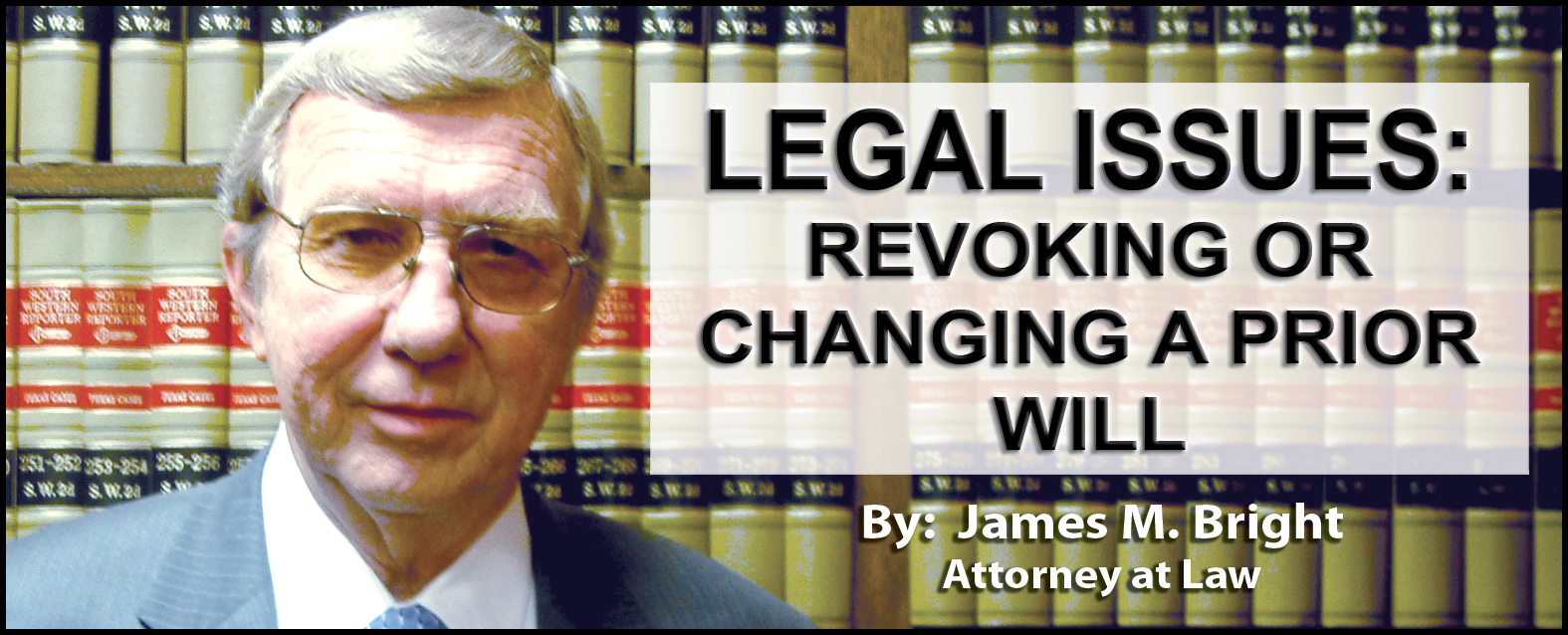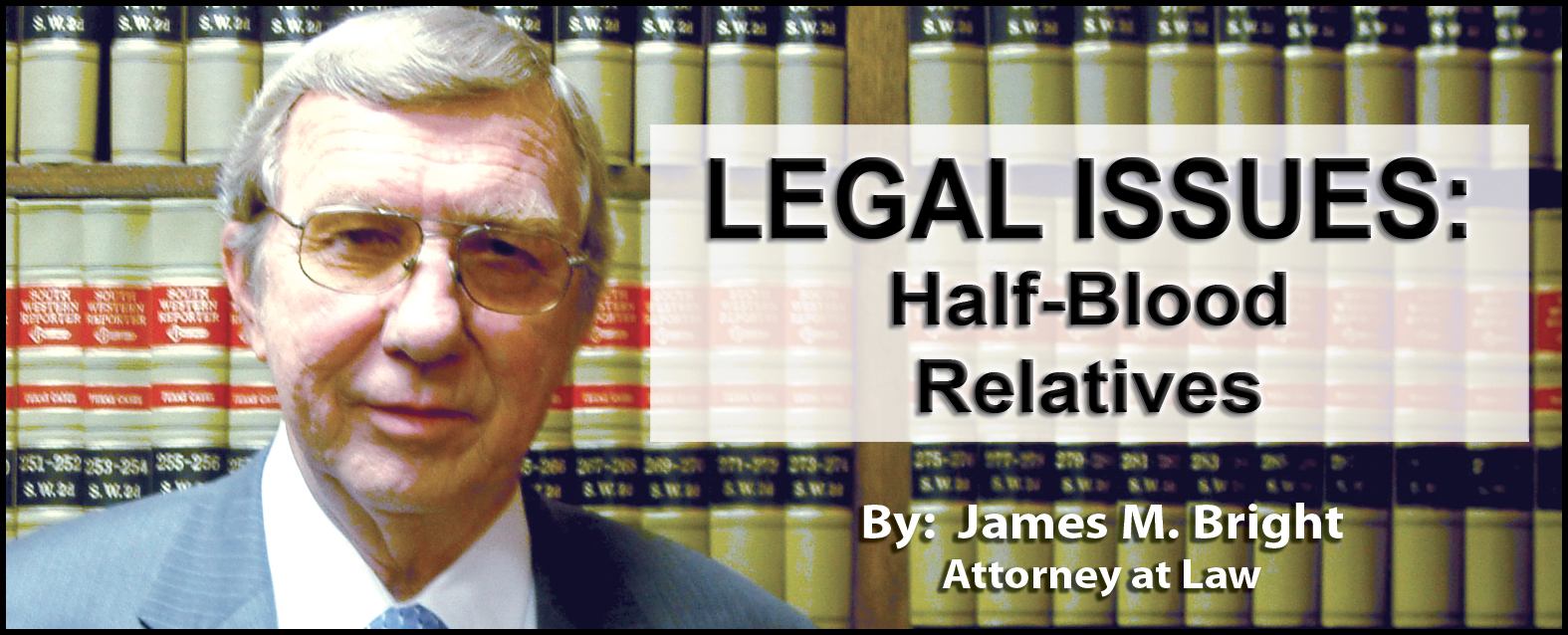The following is provided for informational purposes only and is not, nor should it be construed as legal advice.
This firm is often asked to review prior Wills and determine what, if anything, should be done to “bring them up-to-date.” On the one hand, if your Will currently expresses your wishes regarding how you want your property to pass after death, you do not need a new Will. This is assuming that your current Will is in good form and is “in fact” a Will.
If, on the other hand, your Will as currently written does not express your exact wishes regarding how you want your property to pass after death, you may revoke your prior Will or execute a codicil.
Revocation of your Will is a serious matter and should not be undertaken without preparing a new Will to replace it. The new Will should then conform to your wishes as you would like for your property to pass in the event of your death.
In the event that your changes do not require major revisions, then you may wish to execute a codicil instead of a revocation. A codicil to your Will does not revoke a prior Will, but simply “fine-tunes” it so that it complies with your more precise wishes.
Codicils:
Case law has defined a codicil as, “a republication of a prior Will that modifies the prior Will. The original Will, as modified by the codicil, constitutes the final distribution of property and rights to the property of the testator, and speaks from the date of the execution of the codicil.” Hohmann v. Langehennig, 153 S.W. 2d 1011.
A codicil is distinguished from an original of the Will in that it supplements the prior Will. It qualifies or amends a prior valid Will, but does not revoke it.
Estates Code § 253.002 provides that a codicil must be made with “like formalities” of the Will that it modifies. This can be somewhat confusing. It does not mean that it must be as formal as the Will that it modifies, but it does require that it be executed in accordance with all legal requirements of a Will.
Revocation:
A written Will can be revoked in only one of four ways:
1. Subsequent Will – It is standard practice by all law firms with which this writer is familiar to place verbiage early in the Will that states essentially, “. . . do publish and declare this to be my last will and testament, hereby revoking all Wills and codicils previously made by me.” This is a preferred way to revoke a prior instrument. It is worthy of note that normally a revocation encompasses not only the original Will, but also all codicils.
If the intent to revoke the prior Will is not shown in the subsequent instrument, it presents a question for a court to decide, whether the intent to revoke should be inferred by the later instrument, or if the later instrument is only intended as a codicil. This is a court question that you may wish to avoid by clarifying your intent.
2. A Later Codicil – As earlier noted, normally a later codicil does not revoke the entire Will, but only revokes those sections which you intend to modify. It actually republishes the original Will and usually contains some version of the following language: “. . . in every other respect, I confirm and republish my Will, dated (original date).”
3. Revocation by Non-testamentary Instrument – Any writing may be offered into evidence to show revocation, but in order to be effective, it must show a clear intent to revoke a prior Will. Case law has stated that it must be a declaration which is, “. . . a formal, positive, or explicit statement or affirmation.” Merritt v. Merritt, 158 S.W. 2d 116.
4. Destruction or cancellation – The physical act of writing canceled or revoked over each page of the Will or by simply tearing up the Will shall suffice.
There is even one old, old case that held that a testator can destroy only a part of the Will by physically cutting out the clause in the Will. Schnable v. Henderson, 152 S.W. 231 (Civ. App. – Ft. Worth 1912). It is strongly suggested that you not use this approach. Today’s courts may or may not agree with this 1912 decision!
Some basic instruction in what not to do to make changes to your Will include:
Testator cannot make changes to his/her Will by just obliterating words, erasures or making interlineations, because changes to Wills must be made only with formalities required in making a Will. In my own probate practice, I am occasionally confronted with a problem Will in which the testator has drawn lines through unwanted executors or distribution, and then written the name of a new executor or different distribution in its place. This is not an effective way to make changes and essentially will be ignored by the Court, because the changes do not conform to “like formalities” as discussed above.
Changes may not be made by removing or replacing pages. This is the reason that your attorney may instruct you not to unstaple your Will once it has been executed.
Occasionally, some people (certainly not those who read these articles regularly, but other people) may try to make change to their Wills without benefit of counsel. This is normally not a wise action. This firm recommends that you engage an attorney of your choice to make changes to your Will.
James Bright has been admitted to practice before the Federal Courts for the Southern District of Texas and Eastern District of Texas as well as all of the Justice Courts, Probate Courts, County Courts at Law, District Courts, Courts of Appeal and Supreme Court for the State of Texas. He maintains an office in Houston and by appointment another at 208 McCown Street in the heart of historic Montgomery. Contact may be made by telephone (936) 449-4455 or (281) 586-8277. For more information about wills or probate in Texas, please see- www.houstontxprobate.com
IF YOU WISH TO SUGGEST A TOPIC FOR THIS COLUMN, SEND TO:
JAMES M. BRIGHT
14340 TORREY CHASE BLVD., SUITE 150
HOUSTON, TEXAS 77014
Email: [email protected]






